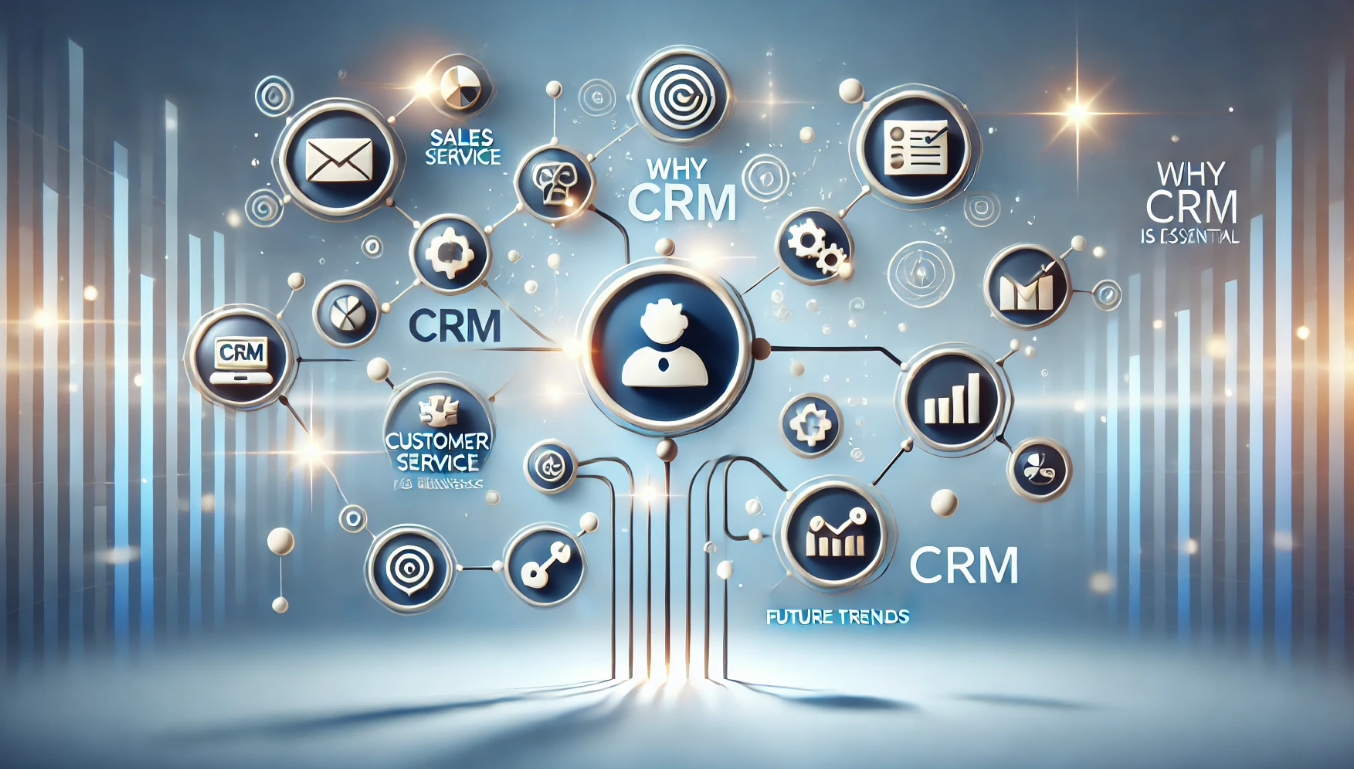In today’s fast-paced and competitive business environment, maintaining strong relationships with customers is more critical than ever. This is where a Customer Relationship Management (CRM) system comes into play. A well-implemented CRM system can be a game changer for businesses of all sizes, driving growth and enhancing customer satisfaction. Here’s why investing in a CRM system is crucial for business growth.

1. Enhanced Customer Relationships
At the heart of every successful business is a strong relationship with its customers. A CRM system allows businesses to gather and organize customer information, including contact details, purchase history, and interactions across various channels. This centralized data provides a 360-degree view of each customer, enabling personalized communication and tailored experiences.
By understanding customer preferences and behaviors, businesses can foster deeper relationships, ultimately leading to increased customer loyalty and retention.
2. Streamlined Sales Processes
A CRM system streamlines the sales process by automating repetitive tasks, tracking leads, and managing sales pipelines. Sales teams can benefit from features such as lead scoring, follow-up reminders, and performance analytics.
With a clear overview of their sales activities, teams can prioritize high-value leads and focus on closing deals more efficiently. This streamlined approach not only saves time but also improves the overall sales conversion rate, directly contributing to revenue growth.
3. Improved Data Analysis and Reporting
Data-driven decision-making is essential for business growth. A CRM system provides powerful analytical tools that help businesses monitor performance metrics, track customer behaviors, and analyze market trends.
With real-time reporting capabilities, companies can gain insights into what strategies are working and what needs adjustment. This level of analysis enables businesses to make informed decisions, optimize marketing campaigns, and allocate resources effectively.
4. Increased Collaboration and Communication
Collaboration is key to achieving business goals. A CRM system fosters better communication and collaboration among team members by providing a centralized platform for sharing information.
Whether it’s sales, marketing, or customer support, all departments can access customer data and insights, ensuring everyone is on the same page. This collaboration enhances teamwork, improves accountability, and leads to a more cohesive approach to customer service.
5. Enhanced Marketing Efforts
A CRM system can significantly enhance marketing efforts by providing valuable insights into customer segments and behaviors. By analyzing customer data, businesses can create targeted marketing campaigns that resonate with specific audience segments.
Features such as email marketing automation, lead nurturing, and campaign tracking help businesses reach the right audience with the right message at the right time. This targeted approach leads to higher engagement rates, improved conversion rates, and ultimately, increased sales.
6. Scalability and Flexibility
As businesses grow, their needs evolve. A CRM system is scalable and flexible, allowing businesses to adapt to changing circumstances. Whether you’re adding new team members, expanding your product line, or entering new markets, a CRM can grow with you.
Many CRM systems also offer integration with other tools and software, ensuring that you can customize your CRM to suit your specific business needs. This adaptability is crucial for long-term growth and success.
7. Better Customer Service
Exceptional customer service is a key driver of business growth. A CRM system helps streamline customer service processes by providing support teams with easy access to customer information and interaction history.
When customer service representatives have all the necessary information at their fingertips, they can resolve issues more quickly and effectively. This not only leads to higher customer satisfaction but also encourages repeat business and positive word-of-mouth referrals.
8. Cost Efficiency
Investing in a CRM system can lead to significant cost savings over time. By improving efficiency in sales and marketing processes, reducing customer churn, and enhancing productivity, businesses can achieve a higher return on investment (ROI).
Moreover, a CRM system reduces the need for manual processes, minimizing errors and operational costs. This cost efficiency allows businesses to allocate resources more strategically, contributing to overall growth.
Conclusion
In an era where customer experience can make or break a business, a CRM system is no longer just an option; it’s a necessity. By enhancing customer relationships, streamlining processes, and providing valuable insights, a CRM system serves as a vital tool for driving business growth.


No responses yet